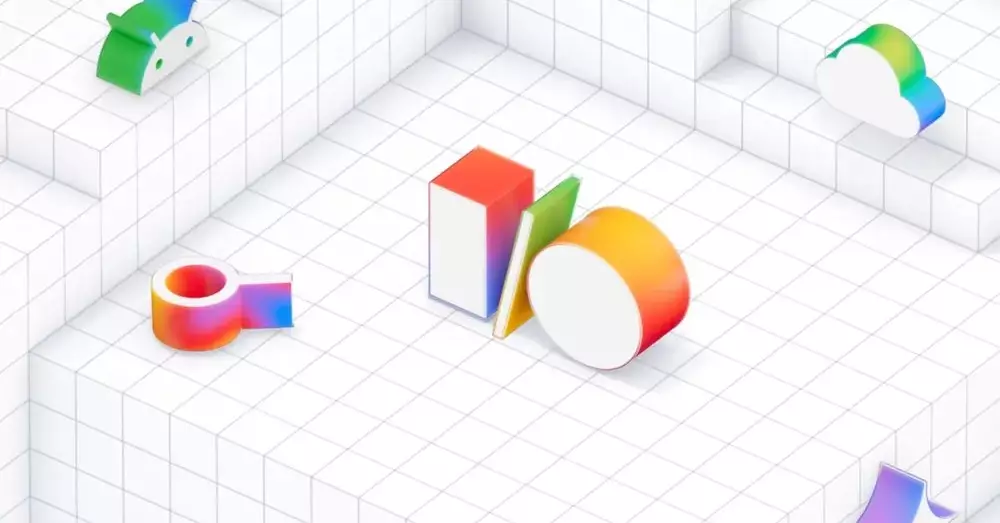As we approach Google’s much-anticipated I/O developer conference, excitement is palpable, yet tempered by a cautious understanding of what to expect. Traditionally hailed as a platform showcasing groundbreaking updates in Android OS, this year marks a paradigm shift. The spotlight is now firmly planted on artificial intelligence (AI) and extended reality (XR), while Android updates remain largely absent from the agenda. For tech enthusiasts, this year’s keynote is poised to unveil how Google plans to harness its AI prowess to revolutionize our interactions with technology.
Scheduled for May 20th at 10 AM PT, the opening keynote will be streamed on Google’s I/O website and YouTube channel, replete with accessibility features, including American Sign Language interpretation. Tech lovers planning to tune in should prepare for an immersive session; the keynote traditionally spans across two hours, packed with insights and innovations poised to reshape digital landscapes.
The AI Arms Race: Google’s Secure Competitive Edge
The focus on AI, especially with Google’s Gemini platform, shouldn’t come as a surprise to industry observers. In a rapidly evolving tech ecosystem, Google finds itself in a hyper-competitive race with titans such as OpenAI, Microsoft, and Meta. The urgency to lead in AI innovation is palpable; in many ways, it serves as a response to the challenges and rapid developments positioned by competitors. As the lines blur between AI capabilities and expectations, Google’s strategy to lean heavily into the AI narrative at I/O signals a deliberate choice to assert its thought leadership and technological supremacy.
With the backdrop of Microsoft’s Build developer event just a day earlier, a back-to-back comparison will likely be the talk of the tech community. Google’s embrace of Gemini is expected to usher in numerous enhancements, making devices smarter, more efficient, and more integrated into everyday life. The prospect of Project Astra updates adds a tantalizing layer of intrigue, inviting speculation on how bold ambitions can be realized.
XR: The Next Frontier in Immersive Technology
While AI takes center stage, Google has not neglected its commitment to XR. The realm of extended reality is evolving rapidly, and Google’s early promises of their XR operating system pave the way for exciting developments. Although last week’s Android Show provided only a cursory overview, hints about prototype smart glasses ignite curiosity about Google’s ambitions in the field. As competitors like Samsung prepare to unveil their own XR innovations, Google appears to be gearing up for a critical strategic moment to assert its identity in the marketplace.
The integration of AI into XR equipment could herald a transformative shift in user interfaces, potentially allowing users to interact with their environment in ways that were previously unimaginable. If executed correctly, the blend of AI and XR could redefine communication, entertainment, and productivity in the digital age.
AI and XR: A Synergistic Future
The interplay between AI and XR holds immense potential. The enhanced processing and interactive capabilities afforded by AI can augment the experiential capacities of XR technologies, creating enriched environments that respond to user needs in real time. Imagine a scenario where AI-driven avatars facilitate real-time learning experiences in a virtual classroom or where personalized AI assistants accompany users on virtual tours, providing tailored insights.
However, the challenge lies in striking the right balance between innovation and user experience. As Google aims to leap into the future, it must prioritize ethical considerations, data security, and user privacy—issues that have permeated the tech landscape in recent years. As neural networks evolve and machine learning becomes more pervasive, Google must ensure that its advancements do not disproportionately exacerbate existing societal concerns.
Looking Ahead: A Year of Transformation
With the limited scope for hardware updates such as new Pixel devices or smart home innovations, Google’s I/O may feel uniquely focused. However, this concentrated direction could very well be the key to unlocking unprecedented capabilities and designing intelligent systems that resonate more deeply with our everyday lives. Google’s approach to I/O reflects an overarching theme of growth, adaptability, and an unwavering commitment to steering the future of technology toward richer, more fulfilling experiences.
As we stand on the precipice of innovation at the I/O conference, excitement mingles with curiosity. The promise surrounding AI and XR transcends mere consumer gadgets—it encapsulates the potential to redefine societal frameworks in how we learn, create, and connect. If successful, Google’s endeavors could set a precedent for how technology evolves in a landscape increasingly defined by intelligence and immersion.


Leave a Reply